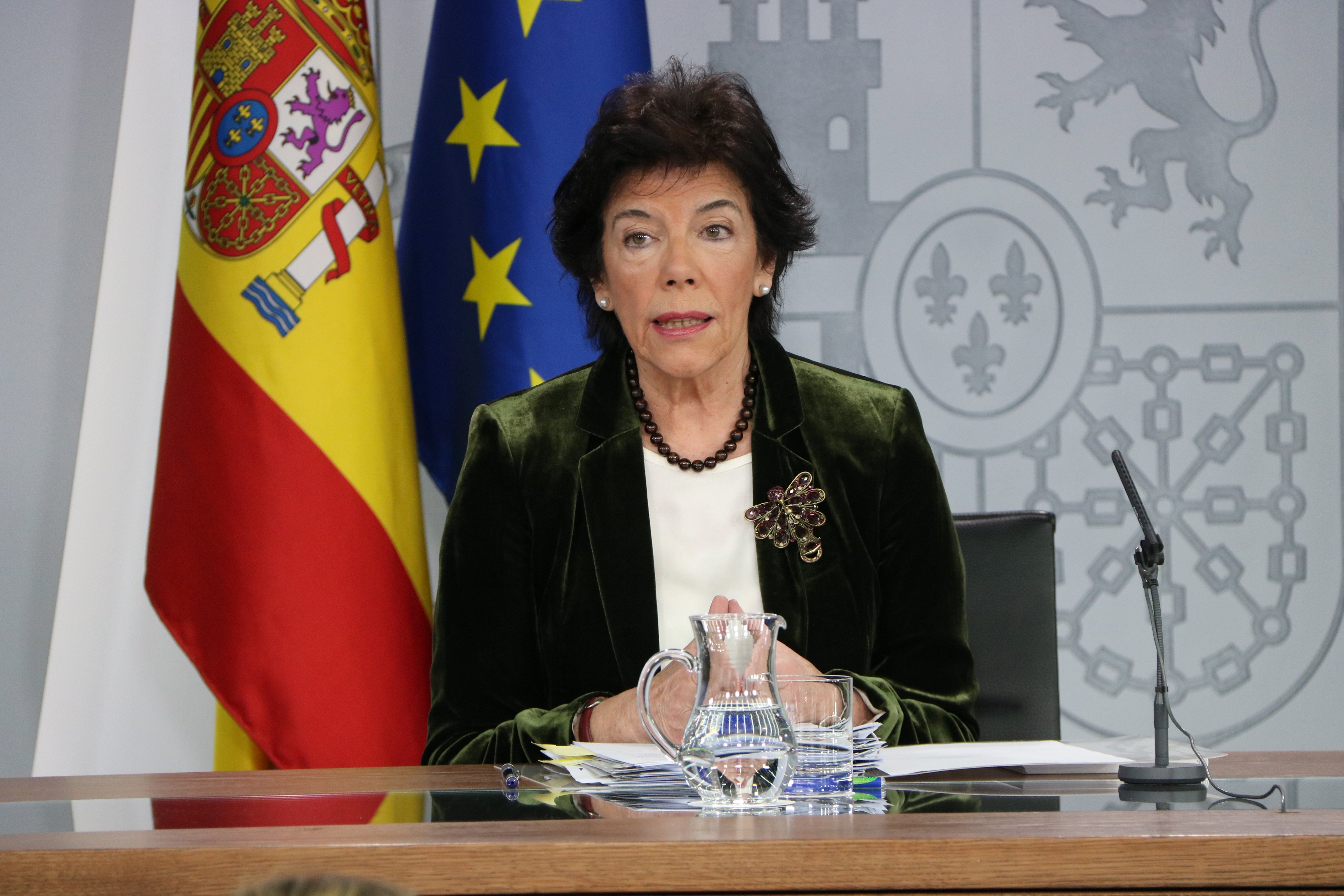A juggling act at the Moncloa palace after Spanish government's last cabinet meeting of the year. Acting spokesperson Isabel Celaá, who appeared in place of Pedro Sánchez, began the press conference recalling that the decisions of European justice are also Spanish, and that they therefore must be followed. However, the Socialist minister also admitted that she "doesn't know" the thrust that will be taken by the State Solicitors' report on Oriol Junqueras' parliamentary immunity, which ERC is awaiting before resuming negotiations for the investiture of the new Spanish government. However, she did point out what the government's legal advisors did last June, when the issue of Junqueras' ability to take up his MEP position first came up: they supported granting him permission to leave prison and carry out his MEP formalities. And she urged that it all be resolved as soon as possible.
Thus, asked what the line of action of the state's legal advisors will be, Isabel Celaá admitted that the executive "does not know what the report will say", but only knows "what was said previously”, when it ruled in favour of allowing Junqueras to leave prison and go through the swearing-in formalities before the electoral commission in Madrid, which Spain required. In any case, she asked the State Solicitors to present its report as soon as possible, if possible next Monday, which would in theory allow time for the investiture of Pedro Sánchez as prime minister before the Reis holiday on January 6th.
Aware of the issue that would be the main focus of the press conference, the Socialist spokesperson headed off questions in her opening remarks, stating that "the Luxembourg court is the supreme interpreter" of legality in the European Union. "It is not a foreign organism, it is not the executor of a Criminal Code that is imposed on Spaniards", argued Celaá, who insisted that "there are not two justice systems" and that "European judges are as much ours as our own national magistrates". And then the clincher: "The Supreme Court will now do its job, which is to apply the law proportionately and according to the principle of legality."
With regard to the State Solicitors' tight deadline for delivery of its opinion - January 2nd - which it is stretching to the limit, Celaá commented that the EU court's decision is an "innovative" ruling which "changes the doctrine" that Spain had up till now on the acquisition of MEP status, and that is why they are analysing it. "The State Solicitors have autonomy in meeting and managing deadlines as they see fit," she said. However, she admitted hoping it would arrive "as soon as possible".
She also sought to disassociate the report from the negotiations on forming Spain's new government: "We politicians need to do our job, which is to give the country the government it needs." She rejected the idea that negotiations with the ERC party have been broken off: "They haven't been broken, and what is not broken is ongoing." She reiterated that there was "no option B" in the event of failure of the ERC route for the investiture.
Since the days of José Luis Rodríguez Zapatero, Spanish prime ministers have always appeared personally before the press after the last cabinet meeting of the year. Mariano Rajoy did it too when he was in office. However, at 2019's final press conference, Pedro Sánchez was not present. In his place, Isabel Celaá summed up the year, recalling all that the Spanish executive had achieved despite being only an "acting" government for most of the year, from "the largest offer of public employment since 2008" to the exhumation of dictator Francisco Franco. "This government has worked," she declared, calling for the rapid formation of a full government to address Spain's most urgent needs.

